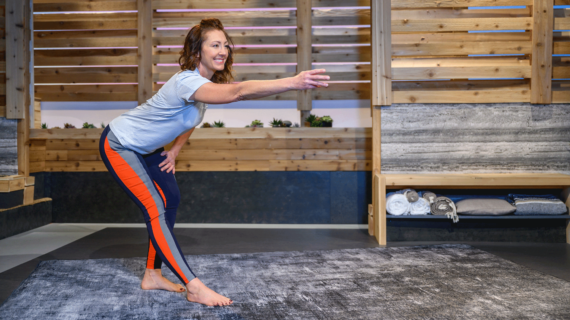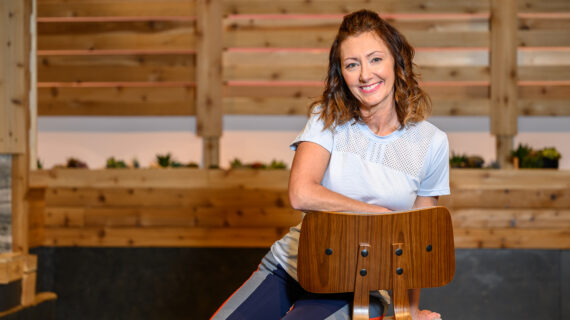Frederica Freyberg:
The pandemic created a backlog of criminal court cases across the state with the biggest crunch in Milwaukee County courts. According to court records, the state as a whole sits at a felony case backlog of more than 17,000 cases as of this week. Milwaukee County has more than 1600 of those. Milwaukee County Chief Judge Mary Triggiano is working to dig out and is getting a boost from more than $14.5 million in COVID-19 relief money, part of $50 million statewide going to police and courthouses. She joins us know from Milwaukee. Judge, thank you for being here.
Mary Triggiano:
Thank you. Happy to join you.
Frederica Freyberg:
So paint a picture. How bad is it?
Mary Triggiano:
So, we have been working really, really hard to make sure our backlog wasn’t as bad as some places across the country. We knew back in the early part of this pandemic, in fact the beginning phases – March, April, May – we needed to come back as quickly, as efficiently as we could so our backlog wouldn’t expand more than it is today. We worked really hard in the beginning, even starting jury trials in the summer 2020 when really no one across the state or the country was doing it. We did that because we knew that a backlog can have consequences. And so I think we — our backlog right now is going in the right direction. It is going down but we really need that extra push, that extra oomph from the monies that the governor has allocated to make sure we can address this backlog in record time.
Frederica Freyberg:
Describe how the pandemic contributed to the backlog.
Mary Triggiano:
Sure. We have — if I just focus on the felony division, which has the highest — I guess the misdemeanor division has a high backlog but the felony division has some pretty serious cases. What a judge wants to do is make sure they are disposing of enough cases so that when they get others in, they’re keeping sort of a balance, right? Whatever goes out comes in. You’re having the same amount of cases or you’re trying to reduce that. When the backlog hit — I mean when the pandemic hit and we shut down, those cases started to go up. Each judge probably has a third to 50% more cases on their calendar than they did before. That creates really, problems in trying to resolve and dispose of cases going out the door. You have the crush of these extra cases constantly on your calendar.
Frederica Freyberg:
Also you’re experiencing a shortage of employees who staff court cases, is that right?
Mary Triggiano:
Every stakeholder in the criminal justice system right now is experiencing a labor shortage. Not unlike the health care industry and other industries across the country, which makes it problematic in trying to get at that backlog. When you need to resolve more cases, you need more people. We don’t have that. We are working to build capacity to make sure we have the ability to get that backlog done in record time.
Frederica Freyberg:
What are the effects of these backlogs on defendants waiting for trial, victims of felony crimes and even community safety?
Mary Triggiano:
Sure. The backlog is untenable and has certainly unintended and intended consequences. You have defendants who might be waiting in custody for lengthy periods of time to have their case come in for a judge for a trial. You will have victims who are waiting for their day in court to resolve a case and have to wait to see that happen and that can cause its own stress and trauma, the delay of justice. It has a pretty significant impact on everyone in the system.
Frederica Freyberg:
How will you use the $14 million plus to kind of resolve the backlog?
Mary Triggiano:
Our intentions are several fold, right. We believe based upon data, the number of cases we can resolve in a year and a half, we need five additional courts. What we’re looking is to set up three felony courts, one domestic violence specialty court and one misdemeanor court so we can address the backlog in each of those divisions. We have to create five courts. We have to have enough staff in those five additional courts to be able to conduct any kind of hearing or trial to resolve cases and reduce the backlog. We’re also looking at a potential pilot. Doing some of our cases in the evening hours to try to reduce the misdemeanor backlog.
Frederica Freyberg:
So a night court and hiring blitz, I would think if you are already kind of down employees. Now you have to staff five new courts.
Mary Triggiano:
Yes, it is a hiring blitz. Most of the agencies that work in the courts have been trying to hire for some time now but I think this additional money will also allow us to use — do hiring in creative ways. Create project positions where somebody might want to come in and handle cases for a period of time or shifting bodies in different areas to be able to make sure we have enough capacity to do these cases.
Frederica Freyberg:
In the courthouse, how welcome are these COVID relief funds and these new courts?
Mary Triggiano:
That is a great question. I think it provides some level of hope. Everyone knows we want to provide fair, equitable and timely justice. And the backlog is weighing pretty heavy on everybody. The judges are working as hard as they can to get these cases moving. The prosecutors, the district attorneys, the public defenders, the court reporters and deputy court clerks are all pitching in, trying to figure out how to move cases as quickly as possible. Having this investment gives us an opportunity to restore some, I think, equilibrium to our court system so that we can advance justice at a pace we all believe is reasonable and I think everyone is really – has some hopes about this money coming in.
Frederica Freyberg:
Judge Mary Triggiano, thanks very much.
Mary Triggiano:
Sure, thank you, appreciate it.
Search Episodes
Related Stories from PBS Wisconsin's Blog

Donate to sign up. Activate and sign in to Passport. It's that easy to help PBS Wisconsin serve your community through media that educates, inspires, and entertains.
Make your membership gift today
Only for new users: Activate Passport using your code or email address
Already a member?
Look up my account
Need some help? Go to FAQ or visit PBS Passport Help
Need help accessing PBS Wisconsin anywhere?

Online Access | Platform & Device Access | Cable or Satellite Access | Over-The-Air Access
Visit Access Guide
Need help accessing PBS Wisconsin anywhere?

Visit Our
Live TV Access Guide
Online AccessPlatform & Device Access
Cable or Satellite Access
Over-The-Air Access
Visit Access Guide
 Passport
Passport


















Follow Us